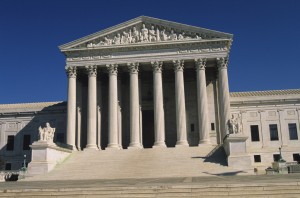 Inspire Pharmaceuticals, a specialty pharmaceutical company with its principal place of business in Lake Forest, Illinois, has reached a settlement agreement of $5.9 million with the US Department of Justice (DOJ). The settlement money will go to the United States and various state governments. According to the US District Attorney’s press release, Inspire admitted to starting a marketing campaign in 2008 to broaden the customer base for AzaSite by focusing on, among other things, AzaSite’s claimed anti-inflammatory effects, which were not approved by the Food and Drug Administration (FDA), and were not demonstrated by substantial evidence or substantial clinical experience. INSPIRE further admitted that AzaSite was prescribed for blepharitis, and that claims to treat blepharitis were submitted to federal healthcare programs for payment. This case was initially brought forward by a whistleblower in 2010 under the qui tam provisions of the False Claims Act. The United States quickly intervened, taking over the case. Continue reading ›
Inspire Pharmaceuticals, a specialty pharmaceutical company with its principal place of business in Lake Forest, Illinois, has reached a settlement agreement of $5.9 million with the US Department of Justice (DOJ). The settlement money will go to the United States and various state governments. According to the US District Attorney’s press release, Inspire admitted to starting a marketing campaign in 2008 to broaden the customer base for AzaSite by focusing on, among other things, AzaSite’s claimed anti-inflammatory effects, which were not approved by the Food and Drug Administration (FDA), and were not demonstrated by substantial evidence or substantial clinical experience. INSPIRE further admitted that AzaSite was prescribed for blepharitis, and that claims to treat blepharitis were submitted to federal healthcare programs for payment. This case was initially brought forward by a whistleblower in 2010 under the qui tam provisions of the False Claims Act. The United States quickly intervened, taking over the case. Continue reading ›
D.C. Hospital to Settle Allegations of Inflated Cost Reporting
 Children’s National Medical Center Inc. has agreed to pay $12.9 million to settle two allegations of defrauding the government in violation of the False Claims Act. The first claim alleged that Children’s National, which has since changed its name to National Health System, inflated its cost reports which forced the Department of Health and Human Services to increase its reimbursement payments. The second claim alleged that Children’s National over reported the number of beds it had available, causing higher payments from the Virginia and D.C. Medicaid Programs and Medicare. Washington D.C. based Children’s National provides pediatric care throughout the D.C area. The Department of Justice (DOJ) alleged that Children’s National cost the Medicare Trust Fund millions of taxpayer’s dollars. Continue reading ›
Children’s National Medical Center Inc. has agreed to pay $12.9 million to settle two allegations of defrauding the government in violation of the False Claims Act. The first claim alleged that Children’s National, which has since changed its name to National Health System, inflated its cost reports which forced the Department of Health and Human Services to increase its reimbursement payments. The second claim alleged that Children’s National over reported the number of beds it had available, causing higher payments from the Virginia and D.C. Medicaid Programs and Medicare. Washington D.C. based Children’s National provides pediatric care throughout the D.C area. The Department of Justice (DOJ) alleged that Children’s National cost the Medicare Trust Fund millions of taxpayer’s dollars. Continue reading ›
Judge Rules Against Guardrail Production Company for Defrauding Federal Highway Administration
A judgment against Trinity Industries for $663.4 million was made on June 9, 2015 for violations of the False Claims Act. According to whistleblower Joshua Harman, Trinity Industries failed to report a change made to highway guardrails to the Federal Highway Administration (FHWA). The change that Trinity Industries failed to report has caused the guardrails to malfunction. Instead of operating to absorb the impact of a crash, the guardrail heads, or end terminals, have worked almost as spears, piercing through the car and causing several fatalities.
Justice Department Files False Claims Act Lawsuit against Quicken Loans
The United States Department of Justice (DOJ) has filed a lawsuit against Quicken Loans, alleging that Quicken’s approval of inappropriate loans resulted in millions of dollars in loss to the government. Michigan-based Quicken Loans, the third-largest mortgage lender in the country, allegedly made hundreds of these loans from September 2007 until December 2011 through the Federal Housing Administration (FHA) program. The complaint alleges that Quicken disregarded FHA rules when approving loans. This suit is one of many recently filed by the DOJ under the False Claims Act against several of the nation’s largest lenders. Continue reading ›
States Department of Justice (DOJ) has filed a lawsuit against Quicken Loans, alleging that Quicken’s approval of inappropriate loans resulted in millions of dollars in loss to the government. Michigan-based Quicken Loans, the third-largest mortgage lender in the country, allegedly made hundreds of these loans from September 2007 until December 2011 through the Federal Housing Administration (FHA) program. The complaint alleges that Quicken disregarded FHA rules when approving loans. This suit is one of many recently filed by the DOJ under the False Claims Act against several of the nation’s largest lenders. Continue reading ›
Relator’s Case Alleging Kickbacks and Off-Label Promotion by Cephalon Inc. Allowed to Go Forward
 A federal judge in Pennsylvania has allowed the majority of a relator’s False Claims Act case against Cephalon Inc. to proceed, alleging a kickback scheme involving off-label drug marketing. Treanda is a chemotherapy drug that was approved by the U.S. Food and Drug Administration (“FDA”) in October 2008 as a treatment for indolent non-Hodgkins lymphoma (“iNHL”). It was approved as a second-line treatment—the FDA approved it only for patients whose cancer progressed after treatment with another regimen. As early as December 2007, Cephalon allegedly promoted Treanda off-label for front-line, rather than second-line, treatment of iNHL, a use not approved by the FDA. Accordingly, this off-label promotion resulted in the submission of false claims for reimbursement from government health programs. Cephalon also allegedly illegally paid kickbacks to physicians in order to further its off-label promotion scheme, conspired with physicians to further its off-label promotion scheme, violated its obligations to the government under its Corporate Integrity Agreement, and retaliated against relator Matthew Cestra for investigating and reporting his concerns regarding Cephalon’s conduct. Cephalon was subsequently acquired by Teva Pharmaceutical Industries Ltd. in 2011. Continue reading ›
A federal judge in Pennsylvania has allowed the majority of a relator’s False Claims Act case against Cephalon Inc. to proceed, alleging a kickback scheme involving off-label drug marketing. Treanda is a chemotherapy drug that was approved by the U.S. Food and Drug Administration (“FDA”) in October 2008 as a treatment for indolent non-Hodgkins lymphoma (“iNHL”). It was approved as a second-line treatment—the FDA approved it only for patients whose cancer progressed after treatment with another regimen. As early as December 2007, Cephalon allegedly promoted Treanda off-label for front-line, rather than second-line, treatment of iNHL, a use not approved by the FDA. Accordingly, this off-label promotion resulted in the submission of false claims for reimbursement from government health programs. Cephalon also allegedly illegally paid kickbacks to physicians in order to further its off-label promotion scheme, conspired with physicians to further its off-label promotion scheme, violated its obligations to the government under its Corporate Integrity Agreement, and retaliated against relator Matthew Cestra for investigating and reporting his concerns regarding Cephalon’s conduct. Cephalon was subsequently acquired by Teva Pharmaceutical Industries Ltd. in 2011. Continue reading ›
Direct Endorsement Lender Settles Federal Housing Administration Mortgage Loan Case
 First Tennessee Bank, headquartered in Memphis, Tennessee, has reached a settlement with the U.S. Department of Justice regarding the bank’s actions during the mortgage crisis between 2006 and 2008. The False Claims Act case alleged that First Tennessee Bank knowingly originated and underwrote mortgage loans that should never have been approved because they did not meet applicable requirements, causing the government to pay claims on those loans that should never have been insured. The loans were insured by the US Department of Housing and Urban Development’s (HUD) Federal Housing Administration (FHA). This settlement in principle finalizes the repercussions of the bank’s involvement in the housing crisis.
First Tennessee Bank, headquartered in Memphis, Tennessee, has reached a settlement with the U.S. Department of Justice regarding the bank’s actions during the mortgage crisis between 2006 and 2008. The False Claims Act case alleged that First Tennessee Bank knowingly originated and underwrote mortgage loans that should never have been approved because they did not meet applicable requirements, causing the government to pay claims on those loans that should never have been insured. The loans were insured by the US Department of Housing and Urban Development’s (HUD) Federal Housing Administration (FHA). This settlement in principle finalizes the repercussions of the bank’s involvement in the housing crisis.
Power Wheelchair Company Settles False Claims Act Case Brought by Whistleblowers
A settlement of $7.5  million has been reached between Orbit Medical, Inc., Rehab Medical, Inc. and the US Department of Justice, concluding a five-year lawsuit. This lawsuit was brought under the qui tam provisions of the False Claims Act. Two former employees of Orbit Medical, Dustin Clyde and Tyler Jackson, will receive 20% of the settlement as False Claims Act whistleblowers.
million has been reached between Orbit Medical, Inc., Rehab Medical, Inc. and the US Department of Justice, concluding a five-year lawsuit. This lawsuit was brought under the qui tam provisions of the False Claims Act. Two former employees of Orbit Medical, Dustin Clyde and Tyler Jackson, will receive 20% of the settlement as False Claims Act whistleblowers.
Fourth Circuit Takes Broad View of Protected Activities in False Claims Act Employer Retaliation Case
 Last week, the Court of Appeals for the Fourth Circuit revived a False Claims Act retaliation case filed by two nurses allegedly terminated by a U.S. Department of State contractor. The decision reversed a district court’s 2013 dismissal of the complaint brought by husband and wife Ronald and Ramona Young alleging that CHS Middle East LLC (“CHS”) of firing them after they complained of contractual violations related to the intensity of treatment, surgical facilities, and staff member qualifications at a military base in Iraq. More specifically, the Court of Appeals found that the quality-of-care concerns expressed by the nurses are protected activities under a recent ruling that expanded liability under the federal statute. It reasoned that if implicit false statements amount to fraud under the False Claims Act, employee criticism of such false statements may constitute protected whistleblower activity. The Act expressly prohibits retaliation because of lawful acts done in furtherance of an action or to otherwise stop one or more violations of the Act. Continue reading ›
Last week, the Court of Appeals for the Fourth Circuit revived a False Claims Act retaliation case filed by two nurses allegedly terminated by a U.S. Department of State contractor. The decision reversed a district court’s 2013 dismissal of the complaint brought by husband and wife Ronald and Ramona Young alleging that CHS Middle East LLC (“CHS”) of firing them after they complained of contractual violations related to the intensity of treatment, surgical facilities, and staff member qualifications at a military base in Iraq. More specifically, the Court of Appeals found that the quality-of-care concerns expressed by the nurses are protected activities under a recent ruling that expanded liability under the federal statute. It reasoned that if implicit false statements amount to fraud under the False Claims Act, employee criticism of such false statements may constitute protected whistleblower activity. The Act expressly prohibits retaliation because of lawful acts done in furtherance of an action or to otherwise stop one or more violations of the Act. Continue reading ›
Supreme Court First-to-File Bar Ruling Opens Door for More False Claims Act Whistleblowers
On Tuesday, the Supreme Court decide d unanimously on two issues: first, that the Wartime Suspension of Limitations Act (WSLA) applies only to criminal charges and not to civil claims; second, that the first-to-file bar does not apply to new claims once a previous claim has been dismissed. The suit brought forward by whistleblower Benjamin Carter against Kellogg Brown & Root Services, Inc. (KBR) alleged that KBR had fraudulently billed the Government for work they did not perform during the Iraq War. The Court’s holding will in some circumstances reduce the amount of time whistleblowers have to bring a claim under the False Claims Act, but will also allow whistleblowers to bring new claims that contain similarities to prior dismissed suits. Continue reading ›
d unanimously on two issues: first, that the Wartime Suspension of Limitations Act (WSLA) applies only to criminal charges and not to civil claims; second, that the first-to-file bar does not apply to new claims once a previous claim has been dismissed. The suit brought forward by whistleblower Benjamin Carter against Kellogg Brown & Root Services, Inc. (KBR) alleged that KBR had fraudulently billed the Government for work they did not perform during the Iraq War. The Court’s holding will in some circumstances reduce the amount of time whistleblowers have to bring a claim under the False Claims Act, but will also allow whistleblowers to bring new claims that contain similarities to prior dismissed suits. Continue reading ›
Kidney Dialysis Provider Settles Allegations of Deliberately Wasting Medicine
 Dr. Alon Vainer’s discovery of alleged waste at a DaVita clinic has led to a $495 million settlement. DaVita, which specializes in treating patients with kidney problems through dialysis, agreed to settle the False Claims Act suit this month. The complaint alleged that DaVita defrauded the government of hundreds of millions of dollars by intentionally wasting medicine in order to increase reimbursement payments from Medicaid and Medicare. Continue reading ›
Dr. Alon Vainer’s discovery of alleged waste at a DaVita clinic has led to a $495 million settlement. DaVita, which specializes in treating patients with kidney problems through dialysis, agreed to settle the False Claims Act suit this month. The complaint alleged that DaVita defrauded the government of hundreds of millions of dollars by intentionally wasting medicine in order to increase reimbursement payments from Medicaid and Medicare. Continue reading ›
 Whistleblower Attorneys Blog
Whistleblower Attorneys Blog





